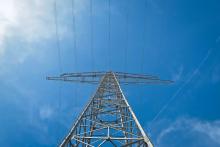Guidelines for submission of application for services-based operations licence
The Singapore telecommunication services market was fully liberalised from 1 April 2000. As required under the Telecommunications Act (Cap. 323), any person operating and providing telecommunication systems and services in Singapore has to be licensed. 1.2 The Info-communications Media Development Authority (the “Authority”) has adopted a two-pronged licensing approach that differentiates between licensees based on the nature of their operations i.e. whether facilities-based or services-based type of operations.


